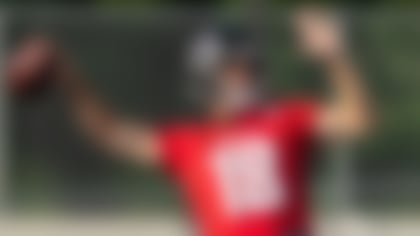The NFL and its players already had let the world know they worked out their differences. On Tuesday, they formally gave word of the settlement agreement to a pair of federal judges overseeing three pending court cases.
In separate conference calls Tuesday, lawyers for both sides in pro football's labor dispute spoke to U.S. District Judges Susan Richard Nelson and David Doty to say they've settled, contingent on a new collective bargaining agreement being finished by Aug. 4.
The leadership of the NFL Players Association voted unanimously Monday to agree to a deal to end the 4 1/2-month lockout. Owners OK'd an agreement last week.
Nelson was the judge in the federal class-action antitrust lawsuit filed by Tom Brady and nine other players March 11, the day that federally mediated negotiations in Washington broke down, allowing the old CBA to expire. The NFLPA said it was dissolving the union and becoming a trade association, which allowed players to sue under antitrust law.
Now, as part of Monday's deal, the NFLPA will re-establish the union this week. The sides then will negotiate areas that only a union can bargain in a CBA, including drug testing, player discipline and disability and pension programs.
The pact requires that those issues be resolved and a full CBA be done by Aug. 4; no one involved believes that will be a problem.
Doty has oversight for the "lockout insurance" case and a separate collusion claim by players.
On March 1, Doty ruled that the NFL failed to maximize TV revenues for the players, essentially leaving money on the table for the last two years to gain leverage in the labor fight. At a hearing in May, the players asked Doty to make $4 billion in disputed broadcast revenue off-limits to owners; the NFLPA also asked him to award players more than $700 million in damages.
In January, the union accused teams of conspiring to restrict players' salaries last offseason.
Copyright 2011 by The Associated Press



